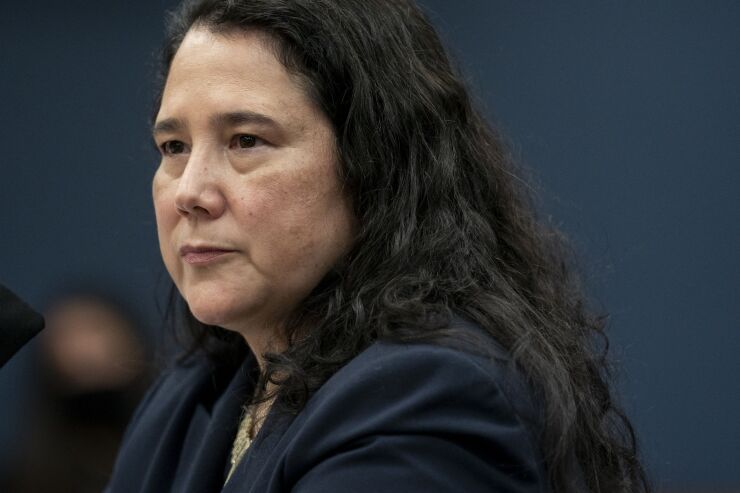
The U.S. Small Business Administration has acknowledged its working capital line product set didn't work well for lenders. Now the agency is pinning its hopes on a three-year pilot program to revitalize what has evolved into an underperforming segment of its flagship 7(a) loan guarantee program.
SBA launched its Working Capital Pilot Program Thursday.
The agency already offers four permanent working capital products. In a notice published July 15 in the Federal Register, SBA stated the existence of so many offerings forced lenders to navigate a mazelike array of different rules and guidelines. Many stayed away altogether, "reducing the availability of working capital for small businesses," SBA admitted in the notice.
"Small businesses require working capital through competitively-priced lines of credit to operate efficiently and fund their pursuit of growth opportunities," SBA Administrator Isabel Casillas Guzman said in a press release.
SBA expects the streamlined pilot — offering lines of credit up to $5 million for domestic or international transactions — to generate 270 working capital credit lines totaling approximately about $337 million in the upcoming 2025 fiscal year. Half of that production will likely be drawn from the four existing credit line programs, but the other half is projected to be entirely new business, according to SBA.
According to SBA, its Express line of credit is popular, but loans are capped at $500,000 and the guarantee is 50%. Under the Working Capital Pilot Program, lines of credit under $150,000 receive an 85% guarantee. Larger lines get a 75% guarantee. Utilization of the other three existing working capital programs is limited, with loans typically numbering about 300 annually.
If early reviews are any indication, bankers seem eager to embrace the pilot.
"We're really excited," Nimi Natan, CEO of Gulf Coast Small Business Lending, a unit of the $3.2 billion-asset Gulf Coast Bank & Trust in New Orleans, said Friday in an interview.
While working capital lines rank among borrowers' biggest needs, the complexity of SBA's existing structure kept Gulf Coast on the sidelines, Natan said. The pilot program changes things. Gulf Coast's board has already approved participation. Natan has budgeted $5 million for working capital lines of credit and Gulf Coast already begun underwriting several transactions, he said.
Gulf Coast has no plans to underwrite standalone lines of credit. Rather, it will offer lines averaging $100,000 as enhancements to conventional 7(a) loans, thus providing borrowers with added flexibility and liquidity. "I'm conservative and we run a conservative shop," Natan said.
The $7.2 billion-asset, Chicago-based First American Bank also appears ready to lean into SBA's Working Capital Pilot. "It will vastly simplify the underwriting process," James Matteson, First American's SBA program manager, said Thursday in a press release, adding the bank would participate "from day one."
According to Matteson, the Working Capital Pilot Program gives lenders wider latitude to underwrite and price lines of credit than SBA's existing programs. "Providing lenders like us with the flexibility to be more creative when structuring a new credit facility is paramount as this will only make the process easier for everyone involved, especially the small business owner," Matteson said in the press release.
For SBA, offering a more effective working capital product is important because lines of credit often are a key tool for businesses. They allow borrowers to tailor the amounts and timing of cash draws in a more efficient and cost-effective manner than lump-sum term loans, SBA stated in the Federal Register notice.
SBA is introducing the Working Capital Pilot at a time when the overall 7(a) program appears to be prospering. Through the first 10 months of fiscal 2024 participating lenders had closed about 56,500 7(a) loans for $24.4 billion. SBA reported 57,400 7(a) loans totaling $27.5 billion for all of fiscal 2023.






